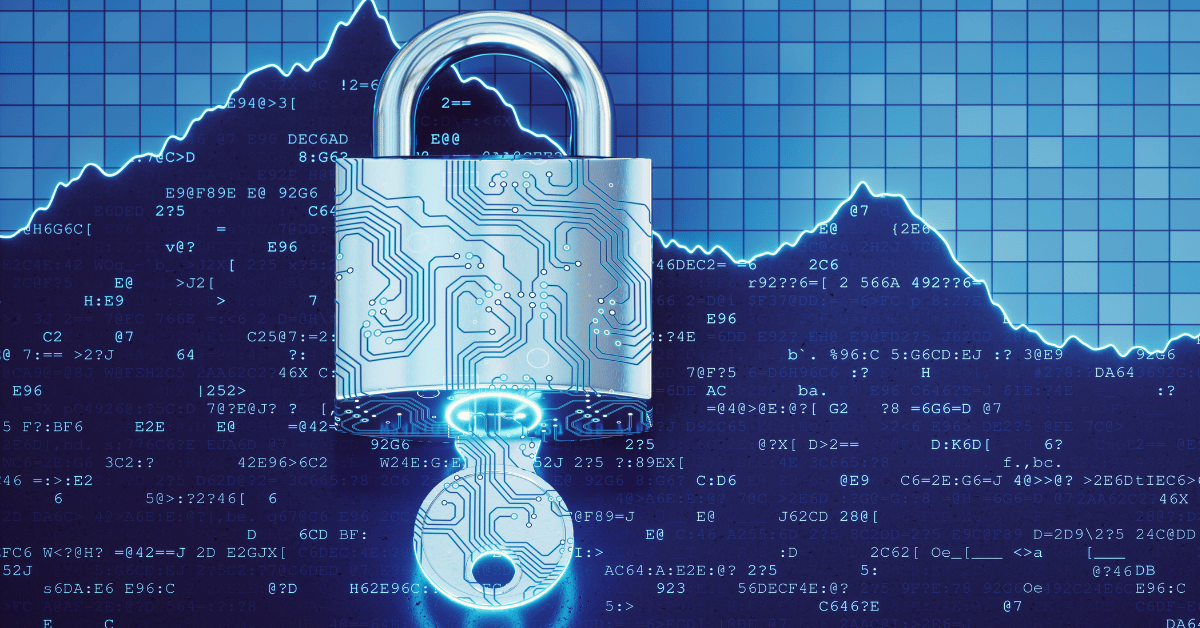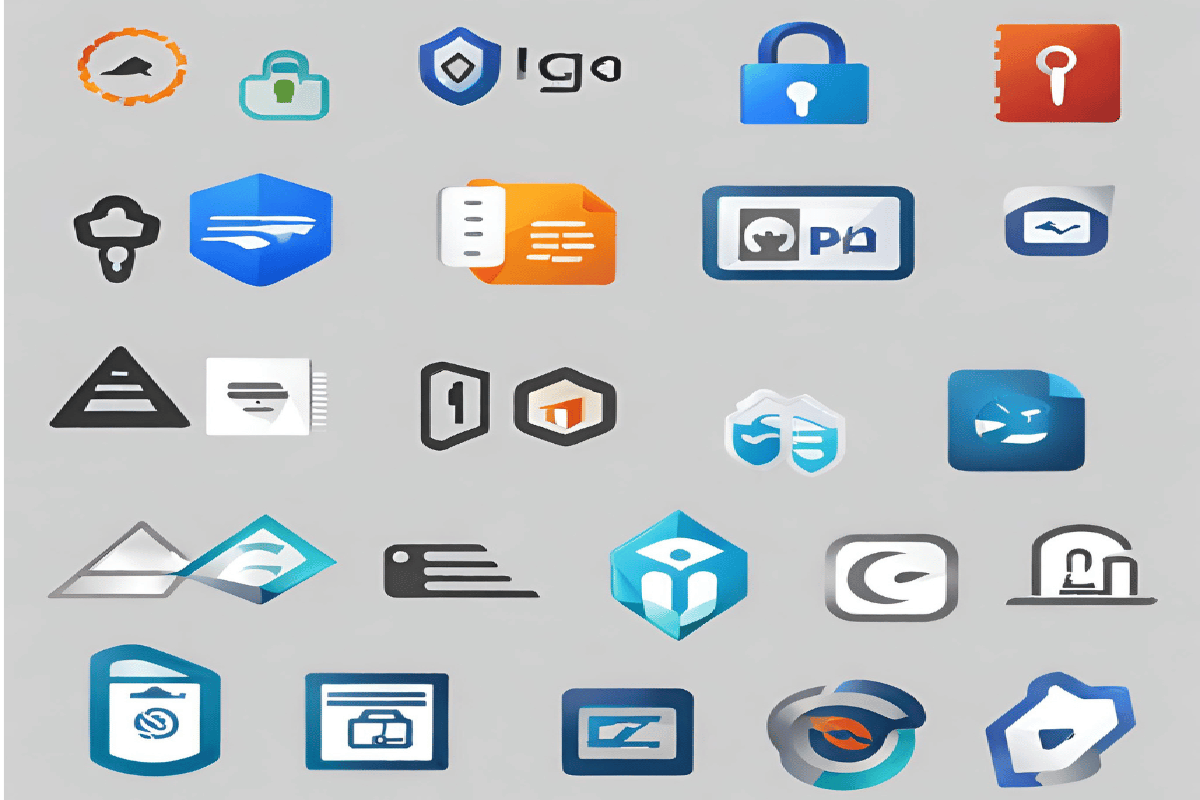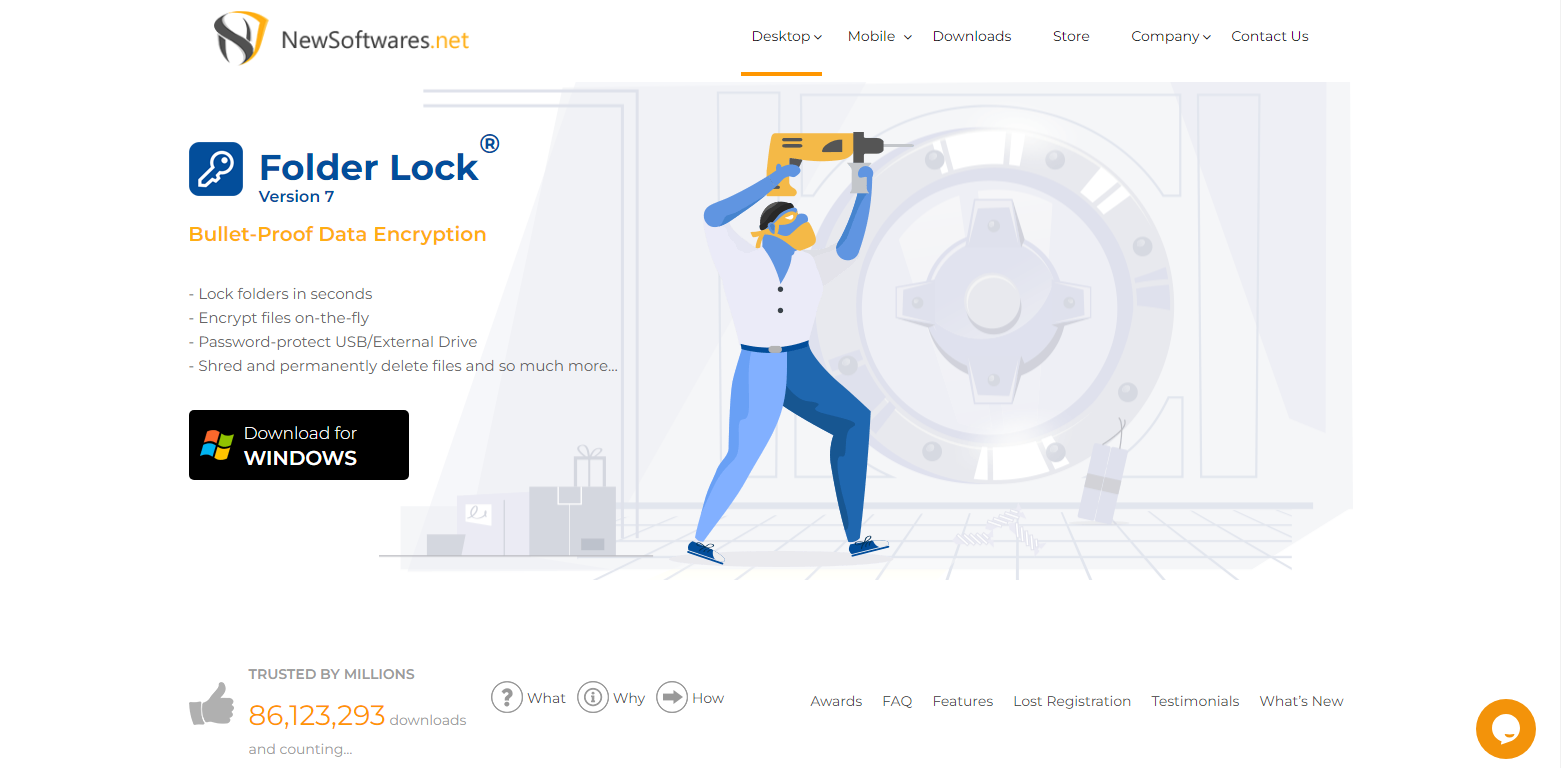Using encryption software is crucial to protect your privacy, secure sensitive information, and defend against cyberattacks. It ensures that your data remains confidential and secure, whether you’re communicating online, conducting financial transactions, or safeguarding personal devices. Encryption is a necessity for individuals and businesses alike.
What Is Encryption?

Encryption is like a digital lock that ensures your data remains confidential and secure. When you send a message or store a file, encryption software scrambles the information into a code that can only be deciphered by someone with the right key. Without this key, it’s virtually impossible for unauthorized individuals to access your sensitive information.
Encryption is a method of converting plain text or data into a coded form, known as ciphertext, to prevent unauthorized access. It uses algorithms and encryption keys to transform data in such a way that it becomes unreadable to anyone who doesn’t have the corresponding decryption key.
The Need for Encryption Software:
Protecting Sensitive Information
One of the primary reasons to use encryption software is to protect sensitive information. Whether it’s personal data, financial records, or confidential business documents, the digital realm is teeming with potential threats. Encryption acts as a shield, making it virtually impossible for unauthorized users to decipher the encrypted data, even if they gain access to it.
Safeguarding Personal Privacy
When you encrypt your data, you ensure that your private conversations, emails, and files remain confidential. This is particularly crucial as we increasingly conduct our personal and professional lives online.
The use of encryption software allows you to communicate securely, knowing that your messages and information are shielded from prying eyes. Whether you’re sharing sensitive medical information with your doctor, discussing financial matters with your bank, or simply sending personal messages to loved ones, encryption provides a layer of security that is indispensable in today’s digital age.
Compliance with Data Protection Regulations
Another reason to use encryption software is to comply with data protection regulations. Governments and regulatory bodies worldwide have implemented stringent data protection laws, such as the General Data Protection Regulation (GDPR) in Europe. These regulations require organizations to take appropriate measures to protect the personal data of their customers and employees.
Encryption is often a fundamental requirement of these regulations. By using encryption software, businesses can demonstrate their commitment to data security and privacy compliance. Failure to comply with these regulations can result in severe fines and reputational damage, making encryption an essential component of any data protection strategy.
Mitigating the Risk of Data Breaches
Data breaches have become a common occurrence, with cybercriminals constantly seeking ways to infiltrate systems and steal sensitive information. Encryption software acts as a robust defense against data breaches by rendering stolen data useless to unauthorized individuals. Even if hackers manage to breach a system, they will find it nearly impossible to decipher the encrypted data, reducing the potential damage significantly.
By using encryption software, businesses can mitigate the risk of data breaches and protect their customers’ trust. In the event of a breach, encrypted data remains secure, minimizing the impact on both the organization and the individuals whose data is at stake.
Ensuring the Security of Online Transactions
Online transactions have become an integral part of modern life. From online shopping and banking to making payments and transferring funds, we rely heavily on the Internet for financial transactions. However, this convenience comes with inherent risks, as cybercriminals seek to intercept and manipulate financial data.
Encryption software plays a pivotal role in ensuring the security of online transactions. When you make a purchase or transfer money online, encryption scrambles your financial information, making it nearly impossible for hackers to intercept or manipulate the data. This ensures that your financial transactions remain confidential and secure, giving you peace of mind when conducting business online.
Protecting Intellectual Property
For businesses, intellectual property is often among their most valuable assets. Whether it’s proprietary software code, innovative product designs, or confidential business strategies, protecting intellectual property is crucial for maintaining a competitive edge. Encryption software helps safeguard these assets by ensuring that they are inaccessible to unauthorized parties.
Safeguarding Personal Devices
Our smartphones, tablets, and computers contain a treasure trove of personal information. From photos and videos to contact lists and personal documents, these devices are a goldmine for anyone seeking to invade your privacy.
Encryption software can be your digital fortress, protecting the contents of your devices. Even if your device is lost or stolen, the data on it remains inaccessible to unauthorized users. This not only keeps your personal information safe but also prevents identity theft and potential blackmail.
Choosing the Best Encryption Software:

Identify Your Specific Needs
Before diving into the world of encryption software, start by identifying your specific needs. Consider what you intend to protect – is it personal documents, business data, or communication channels? Understanding your requirements will help you narrow down your options.
Encryption Strength Matters
One of the most important factors to consider is the strength of the encryption algorithm used by the software. Look for software that employs strong, industry-standard encryption methods. AES (Advanced Encryption Standard) with 256-bit encryption is widely regarded as highly secure.
User-Friendliness
Encryption software should be user-friendly, even for those without extensive technical knowledge. The interface should be intuitive and easy to navigate. After all, if it’s too complex, you might not use it effectively.
Cross-Platform Compatibility
Ensure that the encryption software is compatible with the devices and platforms you use. Whether you’re on Windows, macOS, Linux, Android, or iOS, the software should work seamlessly across all your devices.
File and Communication Encryption
Depending on your needs, consider whether you require encryption for files, emails, or instant messaging. Some software specializes in a particular area, so choose accordingly.
An additional layer of security is two-factor authentication (2FA). Look for encryption software that supports 2FA to further protect your encrypted data.
Strong Password Management
Effective encryption relies on strong passwords or passphrase management. Ensure the software offers features for creating and storing complex, unique passwords.
Open-Source vs. Commercial
Decide whether you prefer open-source or commercial encryption software. Open-source software is transparent and can be audited for security, while commercial options often come with customer support and additional features.
Security Audits and Reviews
Before making your choice, check for security audits and reviews of the encryption software. User feedback and third-party evaluations can give you valuable insights into its reliability and trustworthiness.
Top Encryption Software:

1. Folder Lock
Folder Lock is a popular choice for those looking to secure their files and folders on Windows devices. It provides robust encryption and password protection for your data, making it inaccessible to unauthorized users. Folder Lock also offers features like a secure wallet for storing sensitive information and a shredder to permanently delete files.
2. VeraCrypt
VeraCrypt is an open-source disk encryption software that’s known for its robust security features. It can create encrypted virtual disks and encrypt entire drives, offering strong protection against unauthorized access. It’s compatible with Windows, macOS, and Linux.
3. BitLocker
BitLocker is a full-disk encryption solution developed by Microsoft. It’s primarily available for Windows users and provides seamless integration with Windows operating systems. BitLocker is user-friendly and a good choice for those looking for native encryption on Windows devices.
4. FileVault
FileVault is Apple’s native disk encryption software, available for macOS users. It offers strong encryption for the entire disk and is relatively easy to set up and use. FileVault ensures the security of your data on Mac computers.
5. AES Crypt
AES Crypt is a simple and free file encryption software that works on multiple platforms, including Windows, macOS, Linux, and even Android. It uses the Advanced Encryption Standard (AES) with a 256-bit key length for secure file encryption
Conclusion
The importance of using encryption software in today’s digital world cannot be overstated. It is an essential tool for safeguarding your privacy, protecting sensitive information, securing online communication, and defending against cyberattacks. Whether you’re an individual or a business, encryption software should be an integral part of your digital security strategy.
FAQs:
Is encryption software difficult to use?
No, many encryption software applications are designed to be user-friendly, with straightforward interfaces. You don’t need to be a tech expert to use them effectively.
How does encryption software protect my online communication?
Encryption software secures your online conversations by encoding your messages and voice calls. This means that even if someone intercepts your communication, they won’t be able to understand it without the decryption key.
Can encryption software protect my financial transactions and personal devices?
Yes, encryption software can safeguard your financial transactions by creating a secure channel for online banking and shopping. It can also protect the contents of your personal devices, ensuring that even if they are lost or stolen, your data remains inaccessible to unauthorized users.
